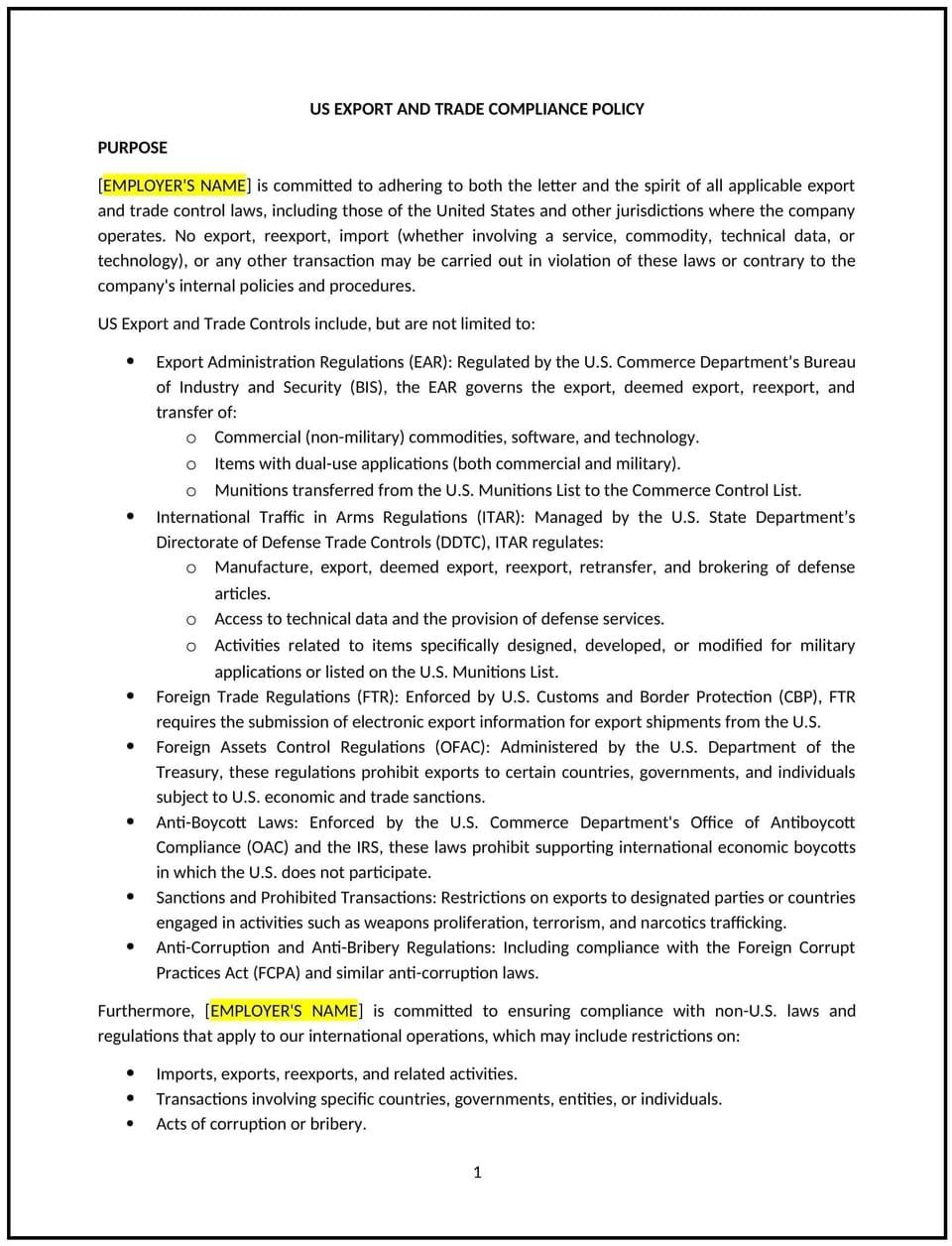US export and trade compliance policy (Mississippi): Free template

US export and trade compliance policy (Mississippi)
This US export and trade compliance policy is designed to help Mississippi businesses navigate federal regulations governing the export of goods, services, and technology. It outlines procedures for ensuring compliance with export control laws, such as the Export Administration Regulations (EAR) and International Traffic in Arms Regulations (ITAR).
By adopting this policy, businesses can reduce legal risks, avoid penalties, and maintain ethical trade practices.
How to use this US export and trade compliance policy (Mississippi)
- Define export activities: Clarify what constitutes an export, including physical shipments, technology transfers, and software exports.
- Establish screening procedures: Implement processes to screen customers, partners, and transactions for compliance risks.
- Address licensing requirements: Identify when export licenses are required and outline steps for obtaining them.
- Train employees: Educate staff on export control laws, compliance procedures, and recognizing red flags.
- Monitor compliance: Regularly review export activities and documentation to ensure adherence to regulations.
- Review and update: Assess the policy annually to ensure it aligns with evolving federal regulations and business practices.
Benefits of using this US export and trade compliance policy (Mississippi)
This policy offers several advantages for Mississippi businesses:
- Reduces legal risks: Minimizes the potential for penalties, fines, or sanctions related to export violations.
- Enhances compliance: Aligns with federal export control laws, such as EAR and ITAR.
- Builds trust: Demonstrates a commitment to ethical trade practices and regulatory compliance.
- Supports growth: Facilitates international trade by ensuring compliance with export regulations.
- Improves efficiency: Provides a structured approach to managing export activities and documentation.
Tips for using this US export and trade compliance policy (Mississippi)
- Communicate clearly: Share the policy with employees and include it in onboarding materials.
- Provide training: Educate staff on export control laws, compliance procedures, and recognizing red flags.
- Monitor compliance: Regularly review export activities and documentation to ensure adherence to the policy.
- Address issues promptly: Take corrective action if export violations or compliance gaps are identified.
- Update regularly: Revise the policy as needed to reflect changes in federal regulations or business practices.
Q: How does this policy benefit businesses?
A: It helps businesses reduce legal risks, ensure compliance with export control laws, and maintain ethical trade practices.
Q: What types of exports require licenses?
A: Exports of certain goods, services, or technologies to restricted countries or end-users may require licenses.
Q: How can businesses screen for compliance risks?
A: Businesses can use screening tools to check customers, partners, and transactions against government watchlists.
Q: What should businesses do if an export violation occurs?
A: Businesses should investigate the issue, report it to the appropriate authorities if required, and take corrective action.
Q: How often should this policy be reviewed?
A: The policy should be reviewed annually or whenever there are significant changes to federal regulations or business practices.
This article contains general legal information and does not contain legal advice. Cobrief is not a law firm or a substitute for an attorney or law firm. The law is complex and changes often. For legal advice, please ask a lawyer.


